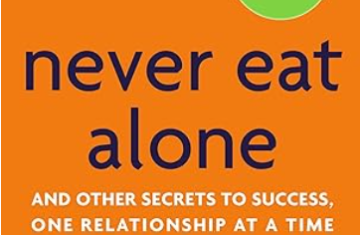
Practice isn’t the thing you do once you’re good. It’s the thing you do that makes you good.
Who we are cannot be separated from where we’re from.
Success is not a random act. It arises out of a predictable and powerful set of circumstances and opportunities.

Malcolm Gladwell’s Outliers flips our usual understanding of success. We often imagine that extraordinary people whether Bill Gates, Mozart, or world-class athletes – are simply born with genius. But Gladwell shows that success is never just the story of one person’s talent. It is always tied to hidden factors like opportunity, timing, culture, and an almost relentless commitment to practice.
One of Gladwell’s most memorable concepts is the 10,000-Hour Rule. Through stories of musicians like The Beatles and programmers like Bill Gates, he argues that mastery comes only after thousands of hours of practice. The Beatles didn’t become “The Beatles” overnight; they played long, exhausting sets in small German clubs, sharpening their craft for years before fame arrived. Similarly, Gates had rare access to a computer at a time when most teenagers didn’t. By the time opportunities appeared, they had already put in their hours.

But Outliers isn’t only about practice. It’s also about the role of culture and timing. Gladwell explains how even something as simple as a birth date can shape one’s chances. In Canadian hockey leagues, children born in the earlier months of the year have a small but real advantage, they’re slightly older, bigger, and stronger than their peers. Over time, that small edge snowballs into bigger opportunities: more coaching, better teams, and eventually professional careers.
He also shows how culture shapes behavior. For example, pilots from certain countries struggled more with communication in the cockpit because cultural norms discouraged junior members from questioning authority. This sometimes led to tragic accidents. In contrast, societies that encouraged open communication saw safer outcomes. Culture, then, isn’t just tradition, it can determine life-or-death results.

Gladwell further explores the idea of legacy and community. He tells the story of Jewish immigrants in New York who became successful garment workers not simply because they were hardworking, but because their cultural background valued skills like tailoring, and because the economic conditions of the time gave them opportunities to use those skills. Success, then, wasn’t an individual miracle, it was the outcome of history, community, and timing.
The overall message of Outliers is clear: talent alone doesn’t explain success. Opportunity, timing, practice, and culture all play crucial roles. Once we see this, success stops looking like a mystery and starts looking like something we can plan for, support, and nurture.
What Youth Can Take Away from This
For the youth of Bangladesh, Outliers carries lessons that are both sobering and inspiring. It challenges the idea that only a select few are destined for greatness. Instead, it says: your environment, your discipline, and the way you use opportunities can shape your future just as much as raw talent.
Common Mistake 1: Waiting for Natural Talent to Show Up
Many young people believe that if they aren’t already gifted at something, they shouldn’t bother pursuing it. This is why some students give up on coding, writing, or public speaking too early.
Fix: Gladwell’s 10,000-Hour Rule shows that skill is built, not inherited. If you start small, practice daily, and keep showing up, you’ll get better than most.
Example: A youth-led robotics team in Dhaka began with almost no resources. Their first few robots failed at local competitions. But instead of quitting, they practiced after school every day. Within three years, they represented Bangladesh in an international robotics contest. They weren’t born “genius engineers” – they became skilled through persistence.
Common Mistake 2: Ignoring the Power of Environment and Timing
Bangladeshi youth often think success is only about their personal hard work. While effort matters, ignoring context can lead to frustration. For example, some young entrepreneurs compare themselves to Silicon Valley founders, forgetting that those founders had access to investors, technology, and networks from the start.
Fix: Recognize your environment and play to its strengths. If your community lacks one resource, lean into the resources it does have. Build networks, share opportunities, and lift each other up.
Example: During the COVID-19 lockdown, a group of students in Khulna couldn’t access regular classes. Instead of waiting for outside solutions, they started free online tutoring sessions for juniors. The environment was tough, but by adapting to it, they not only helped others but also improved their own leadership and teaching skills.
Common Mistake 3: Undervaluing Culture and Heritage
Sometimes youth feel pressured to abandon local practices or undervalue their cultural identity, thinking “success” only means imitating Western models. But Gladwell shows that culture can be a unique advantage if used wisely.
Fix: Instead of rejecting your background, find ways to integrate it. Our cultural habits – like respect for elders, community networks, or resilience in hardship – can actually fuel success when applied to modern challenges.
Example: A young entrepreneur from Sylhet built a small online food delivery business by using his mother’s traditional recipes. What started as family culture turned into a business advantage, because authenticity attracted customers. His cultural roots became his strength.
The Bigger Picture for Bangladeshi Youth

What Outliers really teaches is that success is never a solo act. It is a mix of personal discipline and collective support. Youth in Bangladesh often face challenges like lack of resources, limited access to global platforms, or economic barriers. But within these very challenges lie hidden opportunities. Our cultural resilience, large youth population, and growing digital landscape mean that there are “outlier” chances all around us – if we recognize and use them.
A small rural coding club might produce the next generation of innovators. A young woman blogging in Bangla about mental health might inspire thousands of others to seek help. A student practicing photography every weekend might one day shape the way Bangladesh is seen on the global stage. None of these require “genius” at birth, they require persistence, environment, and the courage to keep going.
Note

Outliers leaves us with a hopeful message: greatness is not limited to a chosen few. It grows out of ordinary people who put in extraordinary practice, who recognize opportunities, and who let their culture and community guide them forward. For Bangladeshi youth, this means that your story is not written yet. No matter where you start – whether in a village school or a busy city campus – you can create opportunities, practice your way into mastery, and shape a future that surprises even you.
So the next time you feel behind or untalented, remember: success isn’t about being born an outlier. It’s about becoming one – through persistence, opportunity, and the will to keep moving forward.
About the writer

Malcolm Gladwell is a storyteller who makes us look at success and life in a completely new way. Born in England in 1963 and raised in Canada, he grew up curious about why some people and ideas take off while others don’t. That curiosity turned into a career – first as a journalist and later as a bestselling author.
Gladwell has written several famous books, including The Tipping Point, Blink, Outliers, and David and Goliath. Each book mixes real-life stories with research, showing that success is not just about talent, but about timing, opportunity, culture, and persistence.
He worked for years as a writer at The New Yorker, where his sharp observations and fresh perspectives made him popular worldwide. Later, he co-founded Pushkin Industries and launched Revisionist History, a podcast where he continues exploring overlooked stories and ideas.
For youth, Gladwell’s biggest gift is the way he takes complex research and explains it in simple, relatable stories. He reminds us that greatness is not just for “geniuses.” Ordinary people can become extraordinary if they practice hard, grab opportunities, and believe in themselves.
If you want to order this book, Click the link here, Bangla: আউটলাইয়ারস (হার্ডকভার)
Thank for giving me your time while reading this. Getting anyone’s time is the most precious thing for me. To read my other blogs like Building Social Business by Yunus | A book summary for youth, Phobia to Nervous moment? Is it normal?, and The Shondha River Stole My Childhood: Why I’m Fighting Climate Anxiety, you can click here.





